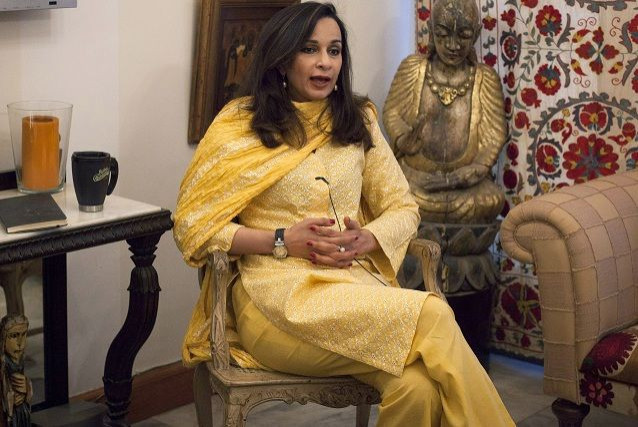'I Need A Good Lawyer': Pakistan’s Ambassador To US May Face Blasphemy Charge

Shehrbano "Sherry" Rehman, Pakistan’s ambassador to the U.S., has been accused of blasphemy, a charge that could potentially lead to a death sentence.
Police in the Punjabi city of Multan filed a blasphemy case against Rehman following a complaint by a local businessman named Muhammad Faheem Akhtar Gill.
BBC Urdu reported that Gill claimed Rehman committed blasphemy during a television appearance in November 2010 in which she was discussing the need to reform and ease Pakistan’s harsh blasphemy laws.
Multan police initially refused to register the case against Rehman but had to reconsider after Gill took his complaints to Pakistan’s Supreme Court.
Ghulam Shabbir Jafri, the senior superintendent of Multan police, told the BBC that his officers are now collecting evidence in connection with the case.
"I've been trying to get this case registered for the last three years, ever since I saw that TV show," Gill told Reuters. "I've even gone to the highest court. I'm glad that action will finally be taken now."
One of Rehman’s attorneys, Abid Hasan Minto, told Agence France Presse that he has filed an appeal in the Supreme Court against the order to probe the blasphemy charge.
Under Pakistan’s blasphemy laws, anyone convicted of having insulted Islam or the Prophet Muhammad could face execution. Many alleged blasphemers have been killed by vigilantes and mobs even before their cases come to court.
According to a report from Center for Security Studies, at least 52 people accused of blasphemy have been killed in Pakistan since 1990.
But Rehman is no stranger to such threats.
The Western-educated, 52-year-old former journalist and member of the ruling Pakistan People’s Party, or PPP, has faced calls for her death before for seeking to reform the country’s blasphemy laws and for other reasons.
In late 2010, she earned the wrath of religious conservatives when she called for the abolition of the death penalty provision of the blasphemy law after a Christian woman was sentenced to death.
In early 2011, one of her colleagues, PPP lawmaker and Punjab governor Salman Taseer, was assassinated by his own bodyguard for calling for the removal of the blasphemy laws. A few months after that, minorities’ minister Shahbaz Bhatti, a Christian who also opposed the blasphemy, was shot to death.
Rehman has also rubbed conservatives the wrong way by proposing bills in parliament that were designed to increase the rights of women, to impose tougher punishment for those who commit honor killings and to guarantee the freedom of the press.
Appointed ambassador to Washington in November 2011, Rehman is a close ally of President Asif Ali Zardari.
Pakistan, like many Muslim and third world countries, has deep schisms in its society -- a wealthy, liberal elite on one side that favors Western ideas on liberty and social freedoms (which Rehman is a part of) and extremist reactionary groups on the other side that is committed to removing any stain of Westernization (in Pakistan’s case, these are usually radical fundamentalist Islamists).
The blasphemy laws in Pakistan, which are believed to be the strictest in the Muslim world, are a relatively recent phenomenon. When General Zia al-Haq seized power in 1979, he sought to gain support among religious radicals (as well as the conservative middle class) by accelerating the pace of Islamization and through the introduction of Shariah law.
However, what specifically constitutes blasphemy can be subject to broad interpretation, and therein lay many problems. Hundreds of Pakistanis are currently languishing in prisons for allegedly violating the blasphemy laws -- many are religious minorities; others were likely the victims of trumped-up charges.
“[The blasphemy law] was designed as an instrument of persecution,” Ali Hasan Dayan, of Human Rights Watch in Pakistan, said. “It's discriminatory and abusive.”
However, death sentences in blasphemy cases have consistently been overturned on appeal, although several of the accused have been murdered in prison while awaiting sentencing.
© Copyright IBTimes 2025. All rights reserved.





















